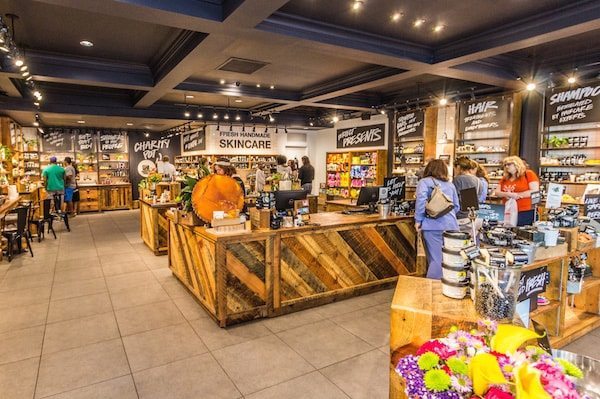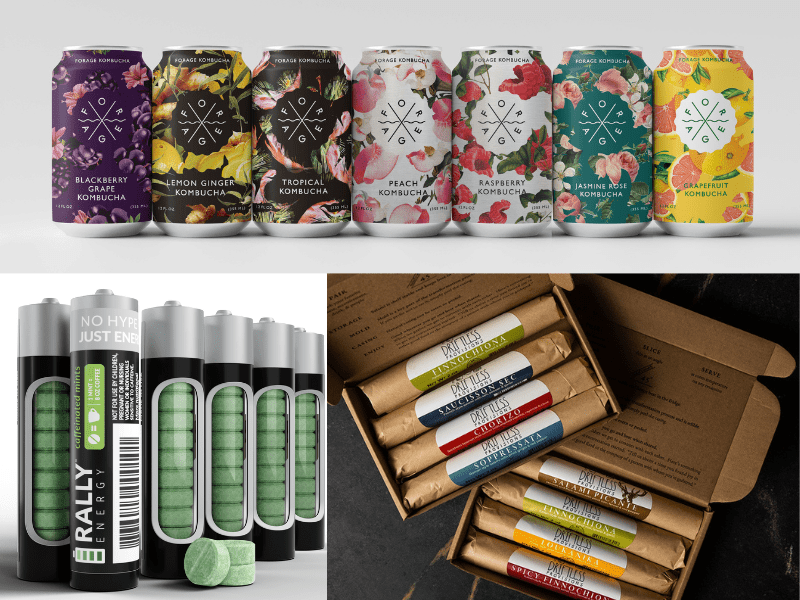Our featured podcast this week talks about how financial processes are needed for food businesses to make key management decisions and clearly communicate with their stakeholders. Food companies need processes to discover what new products their customers want and where they expect to find them, and they need processes for evaluating financial performance.
Accountants and financial staff are often process-oriented people, meaning they have a systematic way of approaching problems, iterating solutions and evaluating the success of those solutions. Process-oriented people are needed because they provide structure and order to what could be a chaotic and unstructured approach to problem-solving.
While processes are valuable, food entrepreneurs, like most entrepreneurs, are very results-oriented people. They like to get things done and focus on the bigger vision rather than focusing exclusively on processes, sometimes even important financial processes. This can be a problem if their accounting systems are out of whack or if they don’t regularly review their financial performance.
However, their results orientation allows them to focus on other key aspects of the business. Good food entrepreneurs are constantly talking to and engaging with their target customers to make sure they are solving problems that actually exist. This helps them stay focused on their target customer and ultimately, the goals of being profitable and growing the value of their food business. Perfect financial processes don’t matter if the business is not providing something of value, and what customers value is constantly changing.
Food businesses need both process and results-oriented people and the healthy tension their (sometimes conflicting) orientations create. Both kinds of people seek to understand the financial reality about their business performance. Good financial staff ground themselves in the truth of writing their assumptions down, seeing if those assumptions were true and learning as a result. Good food entrepreneurs do the same but also ground themselves in the truth of their customers, where they are headed, and thus, where the good business opportunities lie.
And now, our roundup of the best food and beverage finance news, events and resources from around the web…
Business Model Insights
- Don’t solve a problem that doesn’t exist (The Intertwine Group) – “Don’t try to solve a problem that doesn’t exist. I see that a lot. People like the idea, they want the outcome of being an entrepreneur. It’s miserable, I would say. It’s terrible. I bet if you look at Elon Musk, and he’s this icon, I guarantee he has a miserable life by normal people’s standards. You must be super-passionate and have total conviction around the purpose in what you’re doing. Because it’s too brutal. Take a step back and audit it. Be super self-aware, and make sure that you’re solving a problem that exists, and that you’re totally aligned on the real purpose of what you’re doing.”
- Don’t wait for perfect: Advice on small food business from the women of FreshDirect (FoodDive)
- 5 ways to innovate better and faster (New Hope Media)

Raising Capital
- What to consider when working with an accelerator (New Hope Media) – “You need a village to raise a startup. Building a village of mentors and advisers is the best method to find the right path. Good accelerators pull these assets together for their companies and bring the village to you. Accelerators are a place where a brand can find a wealth of resources to address their known and unknown problems. Sometimes having an accelerator program to dig deep and uncover the unknown problems is just as important as solving the known ones. Entrepreneurs are great problem solvers, but we’re often sunk by the problems we never saw coming.”
- What You See Is What You Get With Agtech Entrepreneurs as Silicon Valley Moves Away from Hype (AgFunder)
- How to Raise Money for your Sustainability-Oriented Venture (AgThentic)
CPG/National Brands
- The Journey From Product To Brand (BevNet) – “Moving from product to brand is about focusing on an expert innovation in a specific core category, relentlessly marketing/selling that expertise, and letting consumers attach high order emotional meaning to the real-world consumption of your product. Winners in the changing retail marketplace intuitively know this. Those who fail to learn this dynamic can easily wind up ‘pushing’ a product line that is unfocused, not-innovative and ultimately doesn’t develop powerful emotional meaning. In essence, the product will fail to ever become a brand at all.”
- 3 steps to build your distribution the right way (New Hope Media)
- How Sir Kensington’s Upstart Ketchup Brand Built Its Cult Following (Fast Company)

Market Trends
- Who’s Really Buying Natural and Organic Products? (SPINS) – “Which shoppers make up the core natural and organic segments? SPINS’ and IRI’s NaturaLink™ consumer segmentations show it’s the True Believers and the Enlightened Environmentalists, who represent about 20% of the total population but contribute 38% of total natural and organic dollar sales. Focusing on these two groups is a high (and lucrative) priority in the Natural Products Industry, but how can brands and retailers better understand the remaining 80% of the population and 62% of natural product sales volume?”
- Plant-based products are revolutionizing the milk aisle (New Hope Media)
- Whole Foods names top trends for the New Year (Food Business News)
Farming and AgTech
- The uphill battle of ag innovation (AgThentic) – “The agriculture market, especially at the farmgate level, is fragmented across several dimensions, making it challenging and expensive for startups to acquire customers. Many farms lack the infrastructure needed to utilize digital technologies. And it’s not just connectivity: farmers vary in their ‘readiness’ to adopt, including their financial ability, technological literacy, and awareness of technological potential. Agtech startups, therefore, need to segment their market not only by crop and geography, but also by basic customer ‘readiness’.”
- Farm Legacy Opportunities: Partnering with a Non Family Member (Compeer Financial)
- NOSB rejects proposal to prohibit hydroponic growing in organic standards (New Hope Media)

Deals/M&A
- Where will meal kits find future growth? (FoodDive) – “Consumer interest in meal kits is holding strong. The question today is how consumers will prefer to access these meal kits going forward, and what the most successful and sustainable model will turn out to be. It’s a challenging market to be in — the overhead costs of purchasing, processing and shipping pre-portioned meals and ingredients can be high, and there is a glut of companies big and small scrambling to outpace one another. Providers like HelloFresh may be confident in their ability to ride the momentum of consumer demand — the company recently told investors it will soon overtake rival Blue Apron — but most meal kits are struggling to reach profitability.”
- From Pea Protein To Moringa, 13 Emerging Investor-Backed Ingredients (CB Insights)
- An Uncertain Future: New Entrants In The Food Delivery Space Decline As Existing Startups Struggle (CB Insights)
Industry Events
- Edible Startup Summit (WI DATCP, UW-Extension Dane County) – $, 11/17 – 11/18 in Madison, WI
- Techstars Startup Weekend Food + Tech (Techstars) – $, 11/17 – 11/19 in Boulder, CO
- Nosh Live (Project Nosh) – $, 11/30 in Santa Monica, CA
- Local Foods Marketplace (Feast) $, 12/1 in Rochester, MN. Tera Johnson speaking.
- Urban Farming is A Business (MidWest Urban Farming Institute) – $, 12/7 – 12/8 in Chicago, IL. Tera Johnson presenting.





